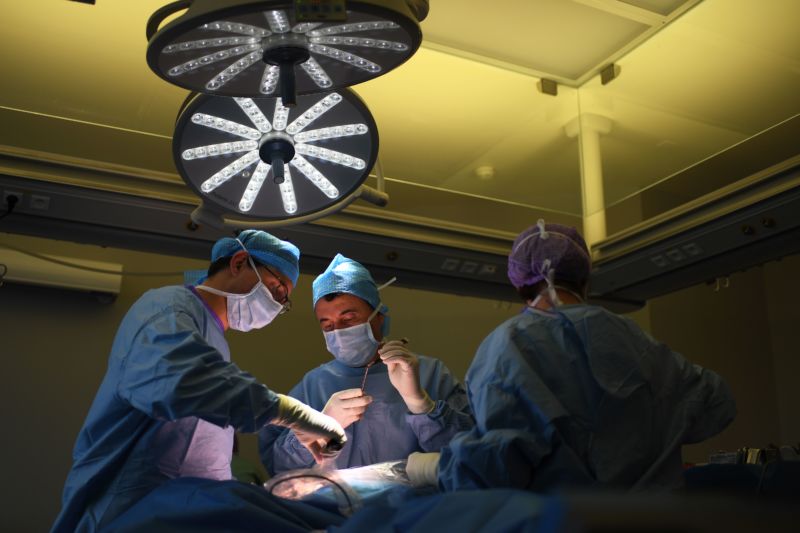Blow out your knee? Hope your surgeon’s got a VR headset

Enlarge (credit: Getty | AFP)
With all due respect to games, porn, and lion kings, virtual reality's killer app might just be saving lives.
At a Stanford-affiliated children's hospital, pediatric cardiologists use an interactive virtual heart to help young patients and their families better understand congenital defects. Researchers in Maryland put on headsets to study viruses in the pursuit of a universal flu vaccine. In Minnesota, surgeons stood inside a VR model of the circulatory systems of conjoined twins-which proved integral to the ensuing separation surgery.
Great uses, certainly, but all variations on The Fantastic Voyage (or Innerspace, if you prefer). Now, building on a pile of evidence stretching back more than a decade, VR is finally getting clinical validation for actual surgical training. In a pilot study conducted at UCLA and presented recently at a meeting of orthopedic surgeons, medical students who practiced a common procedure in VR significantly outperformed those who used conventional preparation methods.
Read 9 remaining paragraphs | Comments